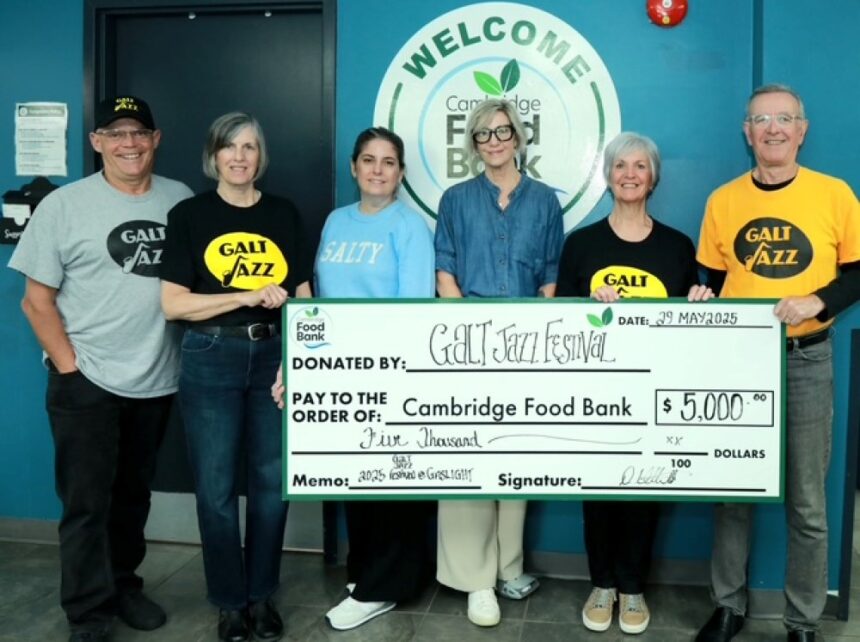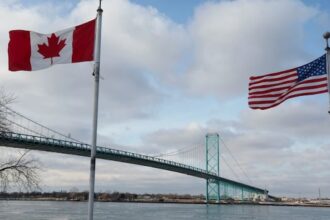The soulful rhythms of jazz have once again proven their power to nourish both spirits and bodies across Cambridge. In a remarkable display of community solidarity, the Cambridge Jazz Festival has orchestrated its most successful charitable initiative to date, presenting a $5,000 donation to the Cambridge Food Bank—a record-breaking contribution that speaks volumes about the festival’s growing influence and commitment to local causes.
“What began as a modest celebration of jazz has evolved into something far more meaningful for our community,” explained Marcus Thompson, Festival Director, during the cheque presentation ceremony. “This year’s attendance surpassed all our expectations, allowing us to significantly increase our support for families facing food insecurity.”
The three-day festival, which transformed Riverside Park into a vibrant hub of musical expression last month, saw unprecedented attendance numbers with over 3,500 jazz enthusiasts gathering from across Ontario. The charitable aspect of the event included voluntary donation options during ticket purchases and strategically placed collection points throughout the festival grounds.
Food Bank Executive Director Sarah Mitchell expressed profound gratitude while accepting the donation. “This contribution comes at a critical time when our resources are stretched thin. The $5,000 will directly translate into approximately 15,000 meals for Cambridge residents experiencing hardship,” Mitchell noted, highlighting the tangible impact of the festival’s efforts.
The Cambridge Food Bank has reported a 23% increase in service demands over the past year, reflecting growing economic pressures on local families. These statistics lend additional significance to the jazz festival’s contribution, which represents more than double last year’s donation amount.
Festival organizers attribute this year’s fundraising success to several strategic improvements, including expanded corporate sponsorships, a dedicated volunteer team focused solely on donation outreach, and innovative fundraising activities between performances. Additionally, several local businesses offered matching donation incentives, amplifying the community’s generosity.
“We’ve discovered that music creates a unique opening for generosity,” observed Caroline Wu, the festival’s community outreach coordinator. “When people are moved by a performance, that emotional connection often translates into a desire to give back in meaningful ways.”
The Cambridge Jazz Festival has steadily grown since its inception five years ago, evolving from a single-day event with primarily local musicians to a multi-day celebration featuring internationally recognized jazz artists alongside emerging talents. This growth has positioned the festival as both a cultural cornerstone and a philanthropic force within the Cambridge community.
Looking ahead, festival organizers have already begun planning next year’s event with ambitious goals for both artistic programming and community impact. “We’re exploring ways to create year-round connections between our musical community and local causes,” Thompson revealed. “The food bank partnership has shown us what’s possible when we harmonize our cultural celebrations with community needs.”
As food insecurity continues to affect growing numbers of Canadian families, could the Cambridge Jazz Festival’s model of combining cultural celebration with concrete community support represent a new paradigm for how arts organizations address pressing social challenges?










